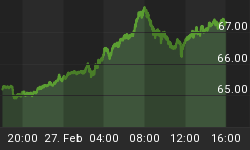The Bank of England is dominating the news once again following the release of its minutes from the August 6th meeting. If you recall, at this meeting the BoE voted to expand its quantitative easing program. At the time this news came as a surprise as the majority of analysts surveyed had not expected an expansion. Since this news was released, the September British Pound has topped and started a down trend.
Besides the fundamental story, technical factors have also contributed to the decline including a weekly closing price reversal top and a change in trend to down on the daily swing indicator chart. The sell-off hasn't been without a couple of retracements, however, driven by improvements in the French and German economies last week and yesterday's news that July's inflation remained flat at 1.8%.
The big story this morning is contained inside the minutes of the Bank of England's August 6th meeting. While the original decision calling for an increase in the funds available for the BoE's asset buyback program provided a shock to the market, today's news that BoE Governor King was defeated in his attempt to increase the funding to $329 billion could turn out to be an even bigger story.
The September British Pound sold off quickly following the release of the minutes which showed that King and two other members of the Monetary Policy Committee favored an increase in funding. A majority of the members voted 6 - 3 to fund a smaller amount.
Those members looking for a bigger increase argued that the smaller proposal was an example of "insufficient stimulatory monetary policy." They cited that the risks of "another large stimulus might be less than the possible costs of acting too cautiously." King and his two colleagues thought that the commitment of additional funds could be overturned if found to be "overly expansive."
The majority of Monetary Policy Committee members who voted for a smaller increase in additional funding for the asset-buyback program said "the most immediate downside risks to the economy seemed to have receded." They also pointed out that the additional increases effects on the economy were "uncertain,", and that this increase risked "unwarranted increases in some asset prices." Finally the members felt that additional asset purchases could "prompt a sharp rise in market interest rates that was unwarranted by the economic outlook."
The September British Pound is selling off this morning as investors interpret the revelations from the minutes as bearish. The fact that some committee members felt the economy was weak enough to warrant a substantial increase in funding while another faction signaled less of an increase is being interpreted as a sign of uncertainty. Traders could also be losing confidence in the decision making committee's ability to read the economic data.
Technically, the September British Pound has resumed its downtrend following yesterday's one day set-back. A break through the low for the week at 1.6273 is likely to accelerate the move to the downside. Longer-term traders should set their sights on a correction back to 1.5376 to 1.4981.
Another sharp sell-off in China's stock market is triggering selling in global equity markets. Overnight China's Shanghai Index fell as much as 5.1%. The total correction from the top is now over 20%, thereby putting it in the bear market category.
The weakness in the equity markets is triggering a flight to safety rally in the September Treasury Bonds and Treasury Notes. In addition safe haven currencies such as the U.S. Dollar and Japanese Yen are also posting gains.
December Gold is expected to feel downside pressure throughout the day if the U.S. Dollar continues to strengthen. Speculation that liquidity issues in China will lead to less demand for industrial metals is expected to pressure December Copper today.
Economic and liquidity issues in China could also have a negative effect on energy prices. Less demand from China, the world's second largest crude oil user, is expected to exert downside pressure on September Crude Oil throughout the day.
Demand for soybeans could also fall if China tightens up its money. Since announcing its stimulus plan in late 2008, China has gone on a commodity buying spree. If this buying stops and the Dollar rallies, then look for lower prices in November Soybeans and December Corn.















